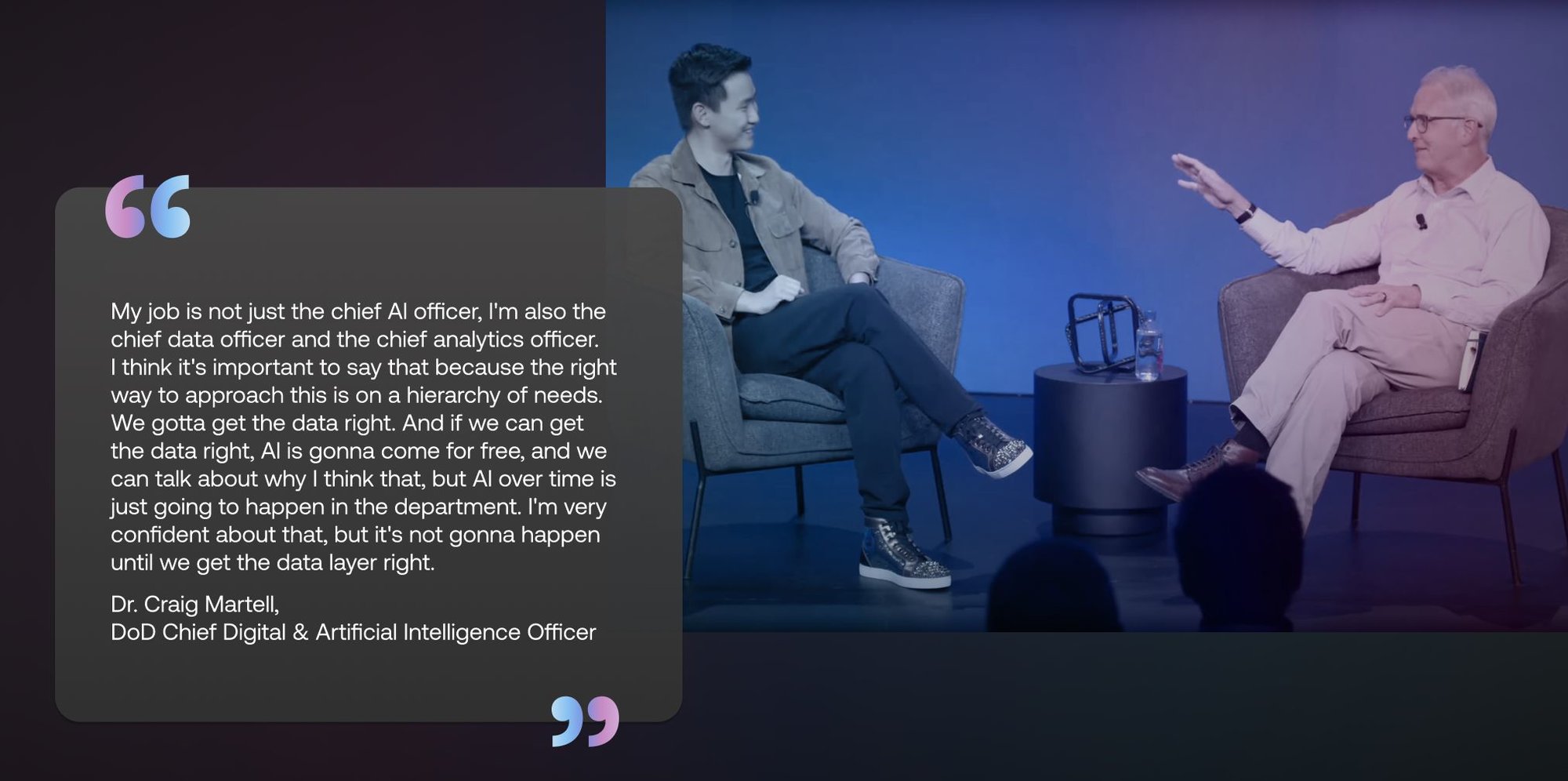General
Autonomy Table Stakes: DoD’s Data Layer
by Jonathan Hudgins on November 30th, 2022
Scale AI is dedicated to helping the Department of Defense (DoD) compete, fight, and win by providing high-quality, government-owned data that can power any AI/ML and autonomy effort. A first step towards this goal is organizing the DoD data layer. Technologies still relatively new for the DoD - like cloud computing and data repositories - are a good start. These are insufficient however, to provide the DoD with data processing capabilities required to fuel large-scale autonomy operations. Scale can provide the next critical layer in the software stack which can bring autonomy efforts out of the labs, into production, and onto the battlefield.
Beyond developing, training, and deploying individual autonomous systems, taking the time to “get the data layer right” can have broader impact, such as enabling the creation of “Data Annexes” to go along with Operational Plans (OPLANs). These would allow DoD leaders to provide the US Army’s autonomous vehicle fleets with key, pre-validated datasets for critical operations in theater. These would include theater-specific perception models (LiDAR, camera, radar), segmentation-mapped avenues of approach, Order-of-Battle class and type IDs for detection and recognition, EO and SAR imagery mapped to friendly schemes of maneuver, and much more. With a single update, a vehicle fleet would be prepared to move out.
Scale provides the data and machine learning operations (MLOps) pipelines for the world’s most ambitious robotics and autonomy teams. As the DoD explores novel approaches to human-machine teaming, it will require a sophisticated, government-owned data strategy with dedicated tooling. This will provide the numerous vehicle platforms and programs with the highest quality data to drive production-grade autonomy. Getting this right is a precursor to mission success.
Scale provides an open data architecture and MLOps pipeline in alignment with the DoD Modular Open Systems Approach (MOSA), decoupled from vehicle ownership. This allows the US Government to reuse training data and algorithms developed within Scale platforms for other programs. Thus the DoD can create a “data flywheel” that strengthens as more programs develop production-grade autonomy.
Scale currently executes billions of annotations per month, maps 3,800 kilometers of roads per week, and leads the industry as the AI perception data provider. Scale partners with self-driving vehicle companies training and building systems ranging from small delivery vehicles to long-haul trucks. Our partners include Kodiak Robotics, Voyage, Optimus Ride, Toyota Research Institute, Embark, General Motors, Honda innovations, Oshkosh, and Nuro - the first autonomous ground delivery vehicle to receive DoT approval for public roads. Additionally, Scale is helping to develop autonomy in other unique domains, including maritime vessels (Sea Machines), autonomous drones (Skydio), and autonomous warehouse systems (OTTO Motors).
Through our in-house capabilities, direct partnerships, and an extensive subcontractor network; Scale collects, curates, and processes more ground truth perception data than any other company in the world.
We are a $7B company with real-world applications at high levels of mission-readiness. Scale has over 700 employees focused on cutting edge ML development, human-machine teaming, content understanding, and novel applications for machine learning in the commercial and federal sectors. Our Modular Open System Architecture reduces cost and time to deployment, increases opportunities for iteration, and allows the government to pick and choose the tools and data it needs, all while maintaining full data rights.
Jonathan Hudgins is a member of the Federal Team at Scale where he focuses on bringing Scale’s proven commercial solutions to solve Federal Government problems. Jonathan is a former active duty Air Force officer and F-15E Fighter Pilot.













